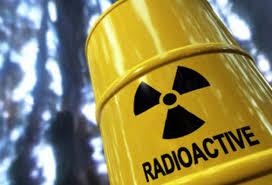This Saturday marked exactly one year since the start of the Japanese operation, which promised to safely pour the liquid into the Pacific through a treatment process, after its extraction from the Fukushima Daiichi nuclear power plant, the scene in 2011 of one of the worst accidents of its kind in the world.
The International Atomic Energy Agency (IAEA) considered that the discharge would have an insignificant radiological impact on people and the environment, but concerns remain, especially in neighboring territories.
Since August 24, 2023, Japan has reported eight rounds of discharges, seven completed and one ongoing, each of approximately eight thousand tons of treated water, with the idea of adding 1.32 million tons over the course of several decades.
Important economies such as China and Russia have stopped importing Japanese seafood since the spill began, although Japanese authorities describe the fears as unfounded, without scientific support.
Asked by journalists in Beijing, a spokeswoman for the Chinese Foreign Ministry, Mao Ning, insisted yesterday that Japan should cooperate in the creation of an independent, effective and long-term international monitoring scheme, with the substantial participation of its neighbors and other interested parties.
Without fully consulting neighboring countries, Japan unilaterally began to dump nuclear-contaminated water from Fukushima into the sea, thus transferring the risks to the world, Mao said, quoted by the Xinhua news agency.
According to the official, it is legitimate, reasonable and necessary for China and other countries to take precautionary measures to protect food security and people’s health.
This week, the IAEA acknowledged fears of possible nuclear accidents in the Zaporozhye and Kursk regions, involved in the current conflict between Russia and Ukraine.
The director general of the agency, Rafael Grossi, said in a statement that military activity in the vicinity of the Kursk plant represents serious risks to nuclear and physical security.
“My next trip to the Kursk nuclear plant,” he announced, “will allow me to make an independent assessment of the situation.”
According to a report by Russian security forces, the Ukrainian army plans to use projectiles with radioactive warheads to attack the Kursk and Zaporozhye nuclear plants.
According to United Nations spokesman Stéphan Dujarric, “everyone should be concerned about having two nuclear plants in the middle of a war zone.”
ef/rgh/mjm









